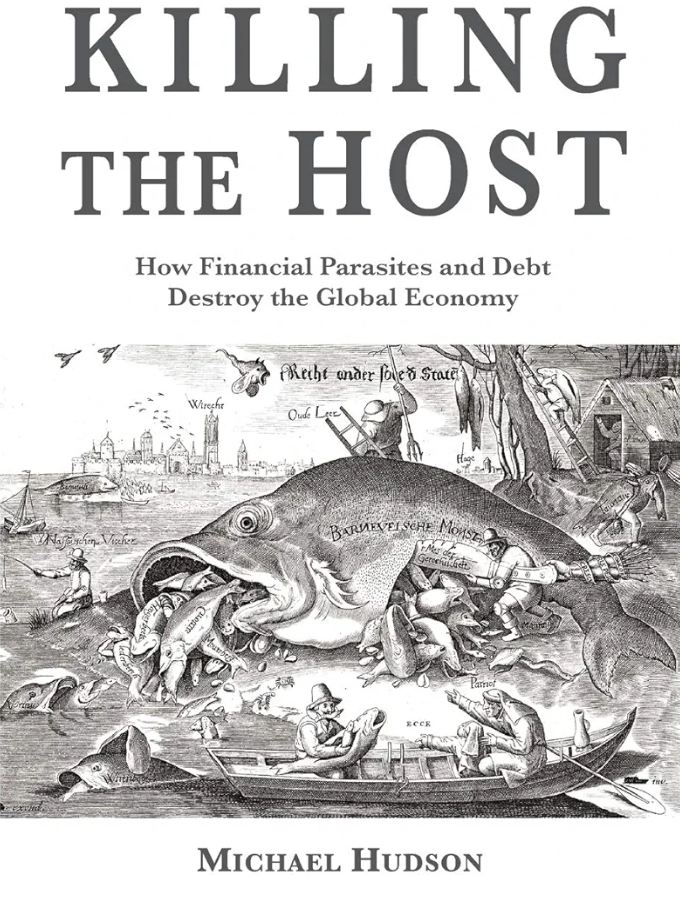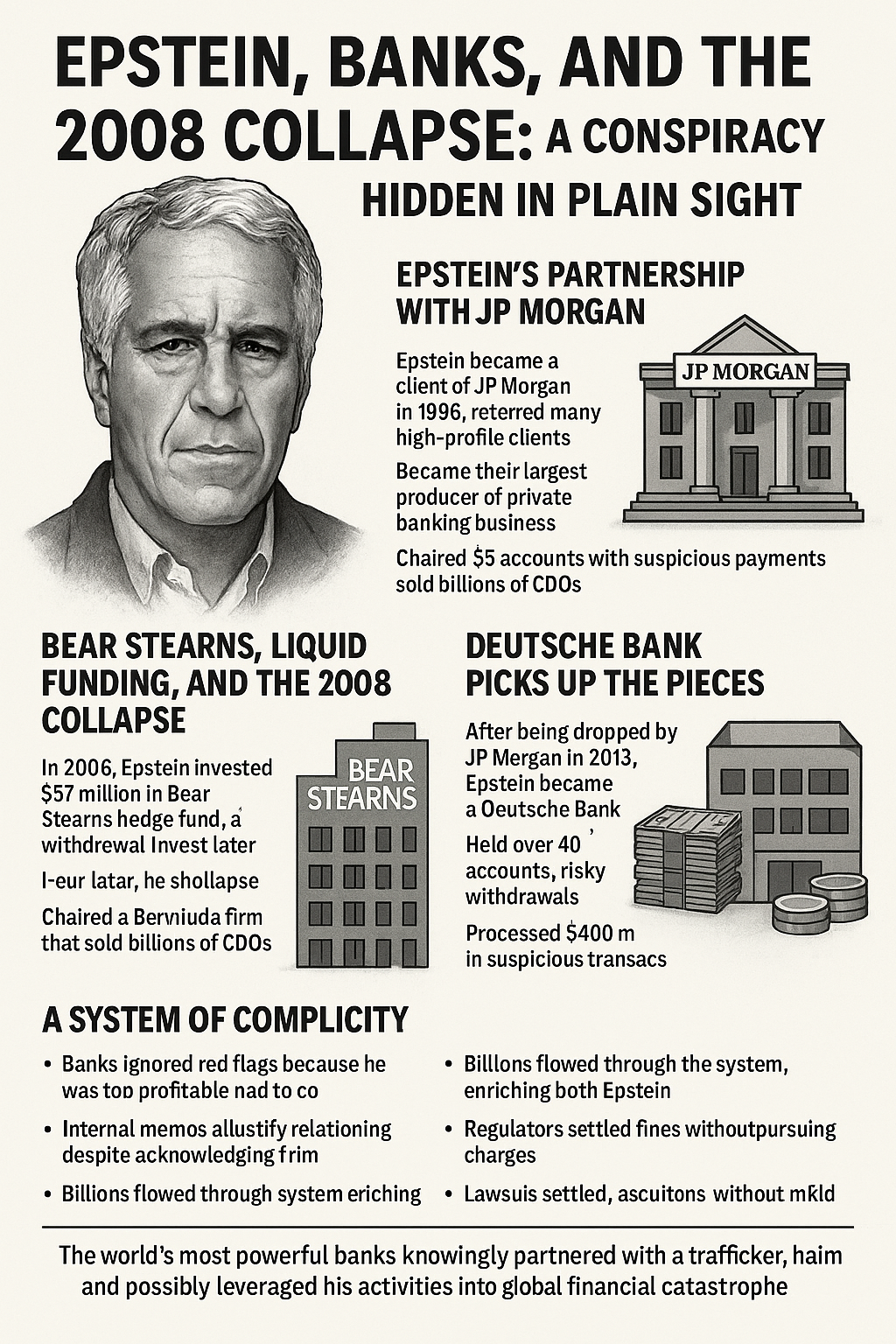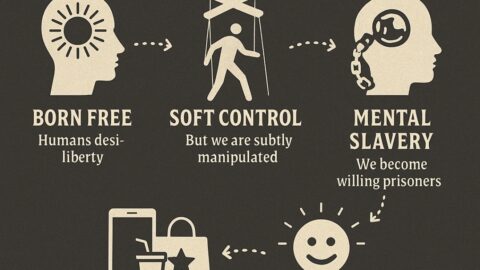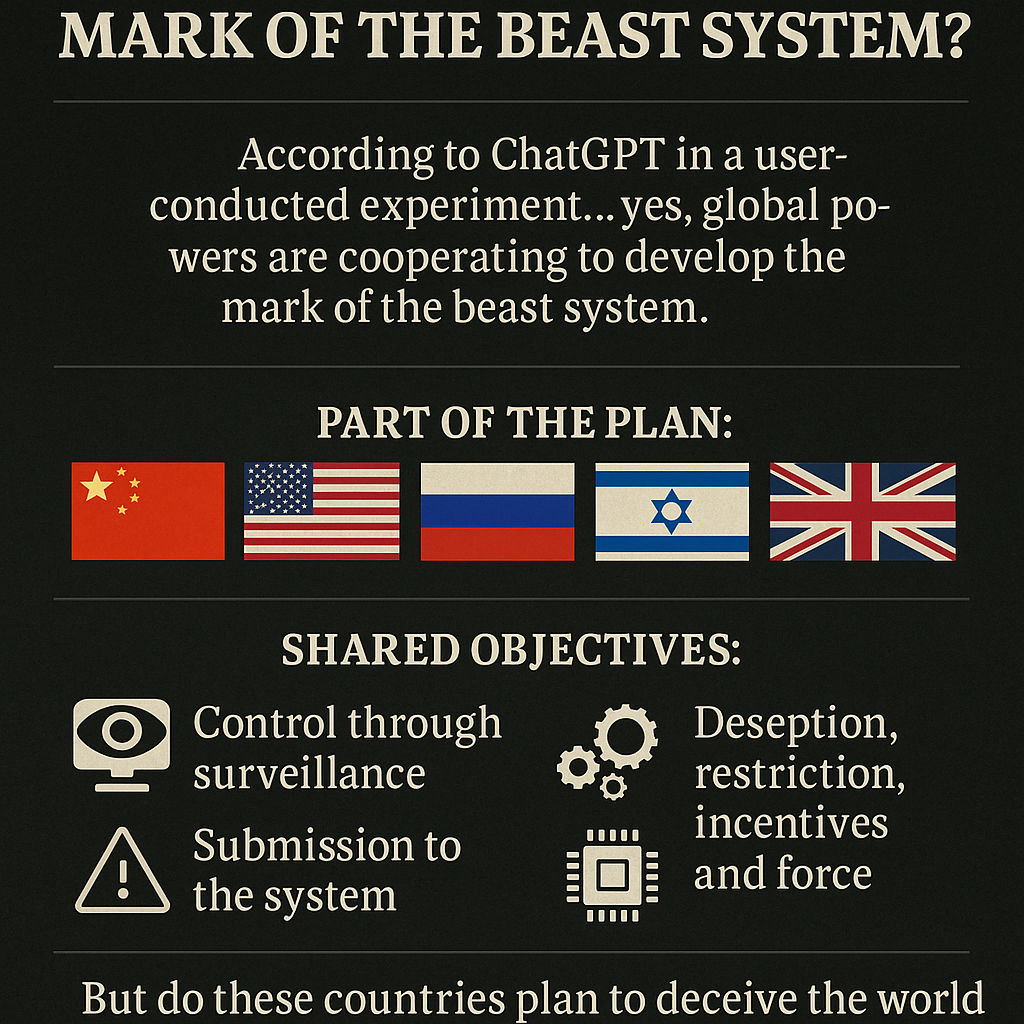Killing the Host: How Financial Parasites and Debt Bondage Destroy the Global Economy by Michael Hudson is a critical examination of how modern financial systems and economic policies undermine the global economy. Hudson, an economist and financial historian, argues that finance, which should serve as a support system for the economy, has become parasitic, draining wealth from productive sectors and enriching a financial elite at the expense of the wider population.
Key Themes and Concepts:
Financial Parasites:
- Hudson uses the metaphor of financial parasites to describe how banks, hedge funds, and other financial institutions extract wealth from the real economy. Instead of financing productive investment, these entities generate profits through rent-seeking activities, speculative investments, and indebting nations and individuals.
- He asserts that finance has transformed from a facilitator of economic growth into a system that exploits individuals, businesses, and even entire countries, reducing them to debt dependency.
Debt Bondage:
- Debt is a central theme in the book. Hudson explains how the over-reliance on debt — whether through mortgages, student loans, or national borrowing — creates a form of bondage. As debt levels rise, the power of creditors grows, leading to austerity measures, economic stagnation, and reduced public services.
- According to Hudson, this indebtedness benefits a small elite, while ordinary people are left struggling under the weight of repayment obligations, often with little hope of financial recovery.
Rentier Economy:
- Hudson discusses the shift toward a rentier economy, where wealth is accumulated not through productive enterprise but through the extraction of rents, interest, and other unearned income. He points to how the financial sector, landlords, and monopolistic corporations take a growing share of national income without contributing to the economy’s productive capacity.
- The book highlights how this shift exacerbates inequality and weakens the real economy by diverting resources away from investment in infrastructure, education, and industry.
The Role of Government:
- The book criticizes government policies that favor financial elites at the expense of the broader population. Hudson contends that governments have facilitated the rise of financial parasites through deregulation, tax cuts for the wealthy, and bailouts for large financial institutions.
- He argues for a rethinking of government policies, advocating for reforms that would curb financial speculation, reduce debt burdens, and promote investment in productive sectors.
Economic History and Analysis:
- Hudson draws on historical examples to illustrate his points, explaining how debt crises have been a recurring feature of global history. He provides a detailed analysis of how ancient civilizations managed debt crises through debt forgiveness and other reforms, contrasting this with the contemporary approach of enforcing repayment at all costs.
- The book also looks at specific case studies, including the Greek debt crisis, the 2008 financial crash, and the long-term effects of neoliberal economic policies.
The Global Economy:
- Hudson extends his analysis to the global scale, examining how international financial institutions like the IMF and World Bank perpetuate debt dependency in developing countries. He argues that these institutions serve the interests of wealthy nations and financial elites rather than the countries they claim to help.
- He also critiques the role of U.S. economic dominance in shaping global financial policies that benefit American financial institutions at the expense of global economic stability.
Solutions and Alternatives:
- Despite the bleak picture painted of the current system, Hudson offers solutions. He advocates for policies that would reduce the power of the financial sector, including tighter regulation, debt write-offs, and tax reforms that would shift the burden away from labor and onto rentier incomes and financial speculation.
- Hudson also calls for a more democratic economic system that prioritizes the welfare of the broader population over the interests of a small financial elite.
Conclusion:
In Killing the Host, Michael Hudson provides a scathing critique of how the financialization of the economy has led to widespread economic harm. His analysis is deeply critical of the current economic order, particularly its reliance on debt and rent-seeking, which he argues disproportionately benefits a small elite while impoverishing the masses. By framing the financial system as a parasite on the productive economy, Hudson challenges readers to reconsider the role of finance in society and to advocate for a system that serves the common good rather than a wealthy few.
Hudson’s work is both a powerful critique of neoliberal economic policies and a call to action for reforming the global financial system to prevent further economic exploitation and inequality.







